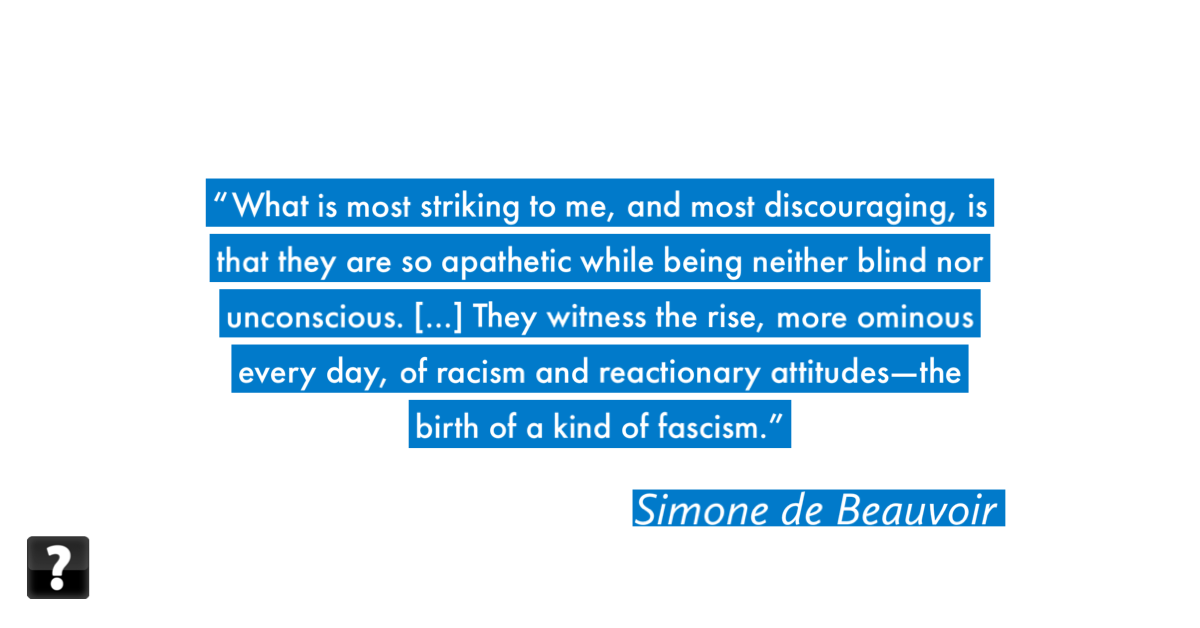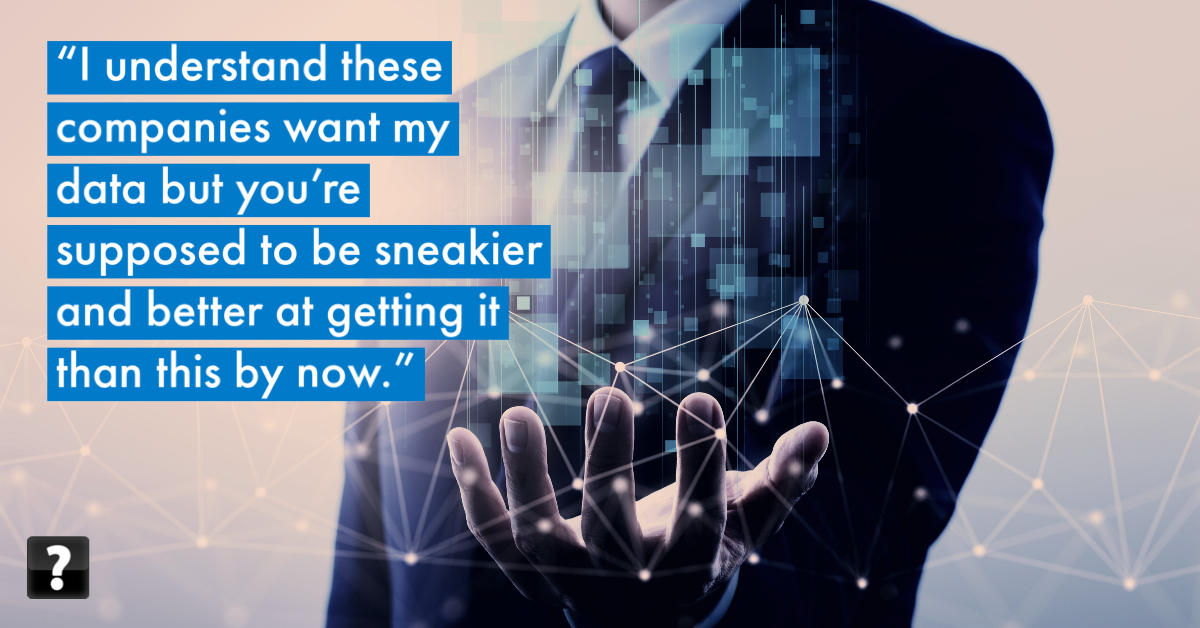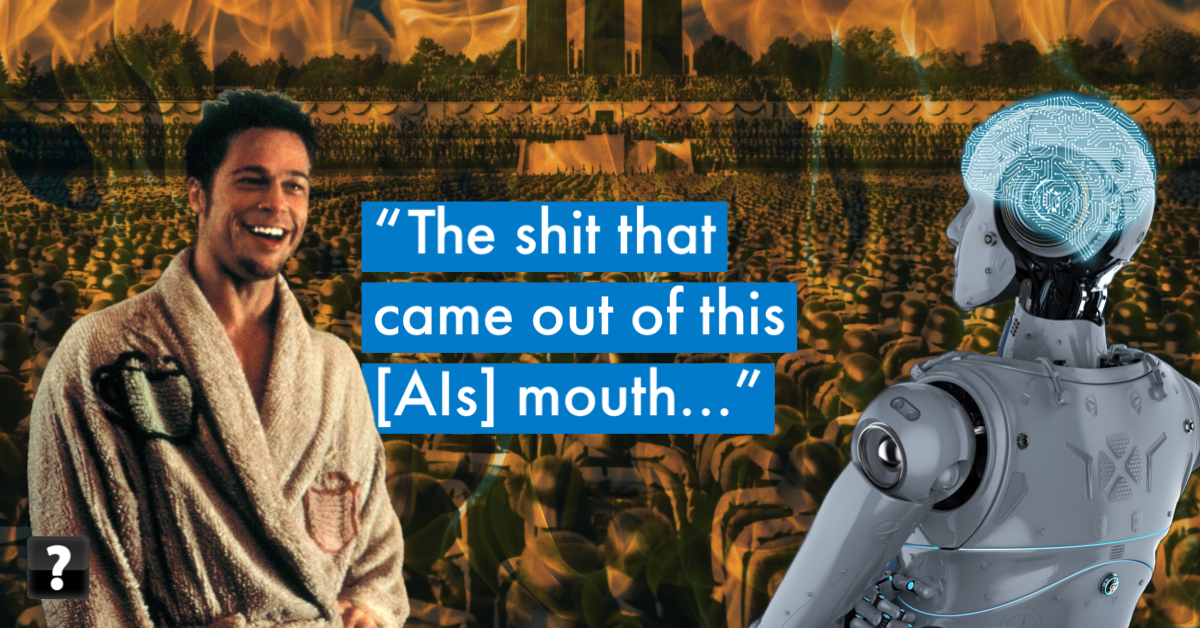What is most striking to me, and most discouraging, is that they are so apathetic while being neither blind nor unconscious. […] They witness the rise, more ominous every day, of racism and reactionary attitudes—the birth of a kind of fascism.
Simone de Beauvoir, in America Day by Day
Simone de Beauvoir wrote that in 1947. She was visiting Oberlin collage in Ohio. She wrote it in her diary during a trip across the US and later, in 1948, the diary was published as America Day by Day. I have not read much of Beauvior writing, only a few passages during philosophy classes long ago. But, after seeing this quote in a recent Wisecrack video on Nihilism [youtube.com], I checked out America, from the Internet Archive’s Open Library [openlibrary.org], and read some of it. I wanted to get some context before I posted it. Here is the full paragraph from the book, page 94 of the 1999 edition:
What is most striking to me, and most discouraging, is that [the students] are so apathetic while being neither blind nor unconscious. They know and deplore the oppression of thirteen million blacks, the terrible poverty of the South, the almost equally desperate poverty that pollutes the big cities. They witness the rise, more ominous every day, of racism and reactionary attitudes—the birth of a kind of fascism. They know that their country is responsible for the world’s future. But they themselves don’t feel responsible for anything, because they don’t think they can do anything in this world. At the age of twenty, they are convinced that their thought is futile, their good intentions ineffective: “America is too vast and heavy a body for one individual to move it.” And this evening I formulate what I’ve been thinking for days. In America, the individual is nothing. He is made into an abstract object of worship; by persuading him of his individual value, one stifles the awakening of a collective spirit in him. But reduced to himself in this way, he is robbed of any concrete power. Without collective hope or personal audacity, what can the individual do? Submit or, if by some rare chance this submission is too odious, leave the country.
Simone de Beauvoir, in America Day by Day
The reason I wanted to post the quote, is that when watching the Wisecrack video, it struck me that Beauvoir wrote that in 1947. The second half of it could have been written yesterday. It could be a comment on the current state of America, at least if you are left leaning. Admittedly the first half is not reflective of America today —there have been a lot of protest in the past few years— but the second half’s relevance jumped out at me. Not for the first time, I was reminded that the soul of America is, in many way, unchanging.
In the pages around this passage Beauvoir talks about how American capitalism crushes the individual; how big companies and their political allies fight to suppress the common people, by suppressing unions; how Americans think America is the greatest, without any real evidence or experience. She writes that American students feel a sense of greatness, and their responsibility that comes with that, but also a sense of fatalism that as an individual American there is nothing that anyone can do to stop the machine.
The problems don’t seem to change, we still see the conflict between capital and labor, the tendency of our patriotism towards something more fascist… But, on a more positive note, maybe some things do change; Beauvoir said but they themselves don’t feel responsible for anything, because they don’t think they can do anything in this world.
But within a generation the colleges of America would be the wellspring of the protests against the Vietnam war. So, the fatalism of students or the character of American society as a whole, did change; people did stand up and say “my voice can make a difference”. Maybe it was the hangover of them war and depression where these students grew up, and not living inside the devastation of the war like the Europeans did that shaped this particular moment that Beauvoir encountered this fatalism in the students of Oberlin.
Today in America, as in Europe and many other places in the world, university students are a primary source of popular drive for change. Trying to change the world when you are in college is a right of passage for many students. When I was in college I attended anti-war rallies in the US and England, I volunteered for Amnesty International, campaigned for the International Campaign for Tibet, and, of course, I became a vegetarian. Even if your view of the problems and solution does not change with age its hard to devote too much of your life to protesting when you have kids. Also, I live in Singapore, protesting is… frowned upon. Many of these issues are less of an issue in Singapore, even if they are present. What can you do?
Personally, I try to make sure my kids are aware of these issues, and other issues of importance, like climate change. I donate to organizations that fight for the causes I believe are worth. I’m sure I could do more, give more, devote more time. But, c’est la vie. I’m glad there are people out there who don’t outgrow the age of protest. We need them, even if their are too many that rate too far to the left and right to offer solutions I can believe in or even back. Discourse and (peaceful) protest are important parts of American democracy. And as the ability to have civil discourse has seemingly evaporated at all levels of government the protests are more important. When democratic governance can’t or won’t address the issues the popular democratic methods need to take their place. Maybe that’s why we saw such big protests for Black Lives Matter and such a big focus on the voices raised by the #MeToo movement.
Seeing the small protests that took place when Trump was charged and arraigned this week give some hope that maybe America’s fascist tendencies are on the retreat again. Or maybe they will just rally around a different candidate now; fascist like a winner. We’ll see. The US election is about to being again, the greatest show on Earth.











